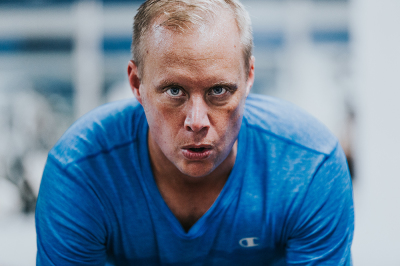Los Angeles pandemic lockdown, trauma, and changing our language
It seems hard to fathom how life can go from big plans and audacious dreams, to simply survival. Many of us in America today, and many around the world for that matter, are going through the biggest trial of our lives.

An increase in the number of homeless families, shuttered businesses, and staggering unemployment has crept into the part of the world where I live and work, in the heart of Los Angeles. Many children in California, and all across America, will now attend this coming school year online, forcing parents to quit their jobs and help their children get through school while at home.
The lockdown has impacted the poorest of the poor in a disproportionate way. Recent reports from parents throughout Los Angeles — families that my colleagues and I have been visiting for over two decades — describe their children feeling trapped with nowhere to go and nothing to do. Traumatizing would be an adequate word to describe what is happening in this city.
Poverty. Unemployment. Uncertainty. Trauma. Survival. These words have been frequent in our vocabulary these days, and they certainly don’t evoke the image of a sunny atmosphere or the can-do spirit I was taught to embrace with every fiber of my being. To put it bluntly: these words are the language of fear.
But laying in bed one sleepless night recently, it occurred to me that we simply cannot allow the new language of fear to become the script written about our legacy. The world around us can change quickly, and there will always be circumstances out of our control. Yet no matter how large or small our problems, we can’t let our current dilemma rob us of hope.
What should we do instead? Well, for one thing, let’s double down on compassion. Let’s maintain a heart to love our neighbors and serve them well. And with that, we’ll have to adapt as well.
Here at the Dream Center — typically a safe haven for folks escaping homelessness and healing from addiction — we have adapted to fill a gap in school lunches by providing a drive-thru food line to feed the school families impacted by the shutdown. We expect millions to be fed on our campus, including those served over the previous months and through the end of the year.
Parents need food for their families, but their children will also need to stay motivated in their education. Solutions and innovations must be developed to keep kids on track in their education by those in the community that have the resources to do so.
At the Dream Center we’re attempting to fill this void as well, as we’ve recently created mobile learning clinics to help guide students during at-home learning this fall. These clinics provide computers, stable internet, tutors, and a place of accountability and motivation to help raise the morale of students who need somewhere to go and some connection point back into daily responsibilities.
These are just a few of the ways we can face the headwinds of a city in decline. We are approaching care and concern for the community like every day could be our last. In other words, we are throwing our biggest punches in rebellion to the pain of the lockdown with unwavering kindness and intentional acts of service.
The pandemic and the lockdown may have unleashed mayhem in our communities; but never forget what you have the power to unleash yourself. The best thing you can do right now is use whatever is at your disposal to serve others.
Yes, there is so much uncertainty surrounding tomorrow. However, every morning we wake up we have a chance to be someone’s hope for a brighter future. The lockdown in Los Angeles has robbed us of many things. But if it takes away our ability to love humanity, only then have we truly lost.
So let’s get to work, and rewrite the script — one meal, one tutor, one act of goodwill at a time.
Matthew Barnett is the co-founder of the Los Angeles Dream Center and senior pastor of Angelus Temple. The Los Angeles Dream Center is a faith-based non-profit dedicated to transforming the lives of individuals and families in Los Angeles through residential and outreach programs.




























